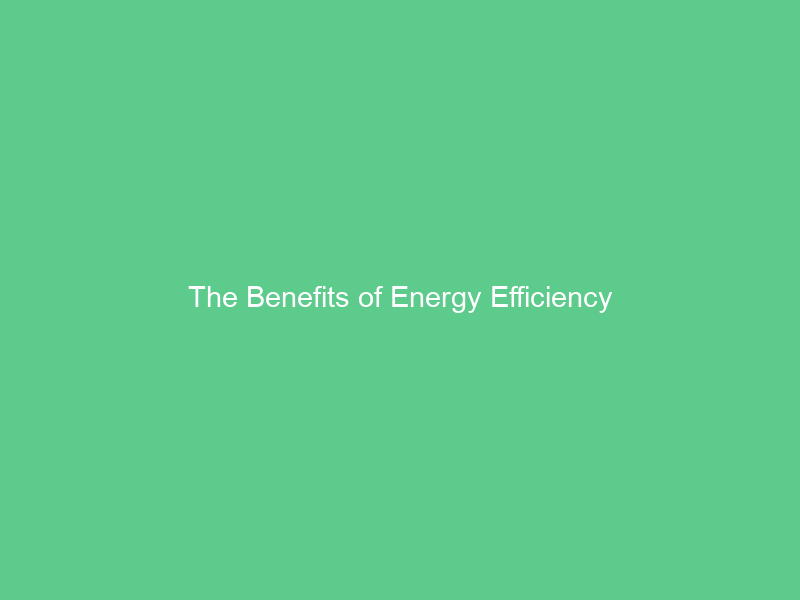Energy efficiency helps reduce overall energy demand, relieving pressure on resources and ecosystems, as well as mitigating climate change impacts.
Energie efficient homes can also create jobs and boost economic opportunities in their respective communities by making homes more energy-efficient, which lowers bills while improving quality of life.
Reduced Utility Bills
Energy efficiency reduces power usage, which ultimately lowers electric utility bills and can be particularly useful for low-income households that spend a higher proportion of their income on energy expenses than other expenses.
Energy conservation also reduces strain on the electricity grid and can prevent blackouts. Many utilities provide incentives, including rebates for energy-efficient appliances and home energy management systems that allow you to shift electricity usage during off-peak periods.
Enhancing energy efficiency can also decrease a nation’s reliance on imported energy resources, mitigating geopolitical risks and strengthening security. A study conducted by the American Council for an Energy-Efficient Economy and Physicians for Social Responsibility discovered that cutting electricity consumption by 15 percent could save six lives daily and prevent $20 billion worth of health harms each year.
Reduced Carbon Emissions
Energy efficiency is a low-impact strategy to mitigate carbon pollution on an immense scale. Reducing energy demand without impacting service output reduces overall consumption while eliminating new generation and transmission systems as needed.
Since 2000, energy intensity improvements have significantly reduced carbon emissions – helping limit climate change and meet global climate goals in the process.
Energy efficiency increases national security and energy independence while diversifying energy sources and mitigating geopolitical risks.
Energy efficiency helps lower energy costs and create more comfortable indoor environments for low-income households, thereby decreasing energy price shocks and other associated problems, such as food insecurity. It also lowers greenhouse gas pollution and other pollutant loads that negatively affect the environment while improving public health by reducing toxic air pollution levels and speeding up fossil fuel phase-out, thus alleviating burden on vulnerable populations and furthering social equity.
Increased Disposable Income
Energy efficiency helps households save money on their utility bills and other household costs such as water, heating, food and transportation costs – enabling them to invest more of their disposable income into other goods and services, thus stimulating the economy.
Reducing energy consumption also strengthens power plants’ reliability, eliminating the need for costly backup generators and increasing resiliency against disruptions caused by events such as storms and extreme weather. This provides communities with protection from disruptions caused by such events as tornadoes.
Energy efficiency not only benefits households but can help governments and businesses increase revenue and disposable income, which allows for new investments that stimulate economic growth. This can be especially useful in low-income countries where investment resources may be scarce. Furthermore, efficient products and practices reduce operational costs so companies can pass savings directly onto customers; thus helping mitigate market failures where perverse incentives prevent consumers from taking advantage of energy efficiency opportunities.
Increased Employee Buy-In
Engaging employees in energy efficiency projects increases their likelihood of success, so the best way to engage employees is through energy conservation as a corporate goal and making sure all employees understand its benefits for all – ranging from lowering environmental impacts and costs for all to reduced impact on the environment and costs in general.
Shipley Energy takes an approach that includes training and ongoing recognition to keep their employees enthusiastic about energy savings, encouraging them to submit ideas and advocate for how energy-efficient equipment should be used effectively. This ensures they remain engaged and the savings continue.
Engaging employees in your commitment to energy efficiency can help attract top talent in your industry. According to research, millennials place high value on companies that prioritize social responsibility; many would even accept lower salaries if it meant working at such an organization.

